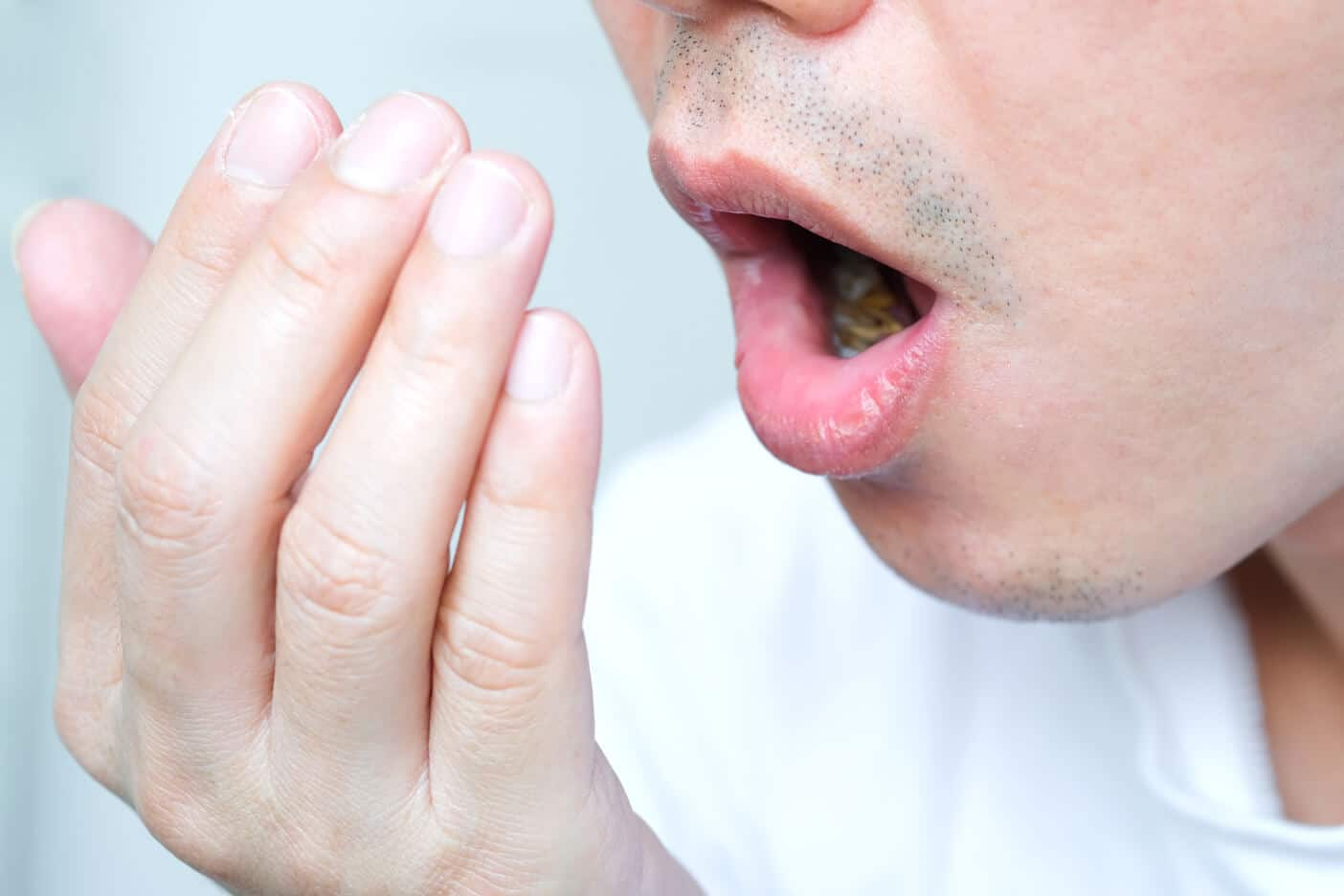-
-

ADULT ORTHODONTICS
Should You Use Mouthwash Before or After Brushing?Brushing and flossing are the foundation of a good oral hygiene routine, but mouthwash can also be a useful addition...

SELECTING DENTAL PRODUCTS
Soft Vs. Hard Toothbrush: Which One Should You Use?The toothbrush has come a long way. As the American Dental Association (ADA) notes...
-
Science & Innovation
- Oral Health and Dental Care | Colgate®
- Oral Health
- Trimethylaminuria And The Fishy Odor


Halitosis or bad breath can create embarrassing social situations for some people. Bad breath usually originates in the oral cavity, but in rare instances, it can be a systemic problem. One such cause is a genetic disease named trimethylaminuria, which is a metabolic disorder of the gastrointestinal tract. Here's what you need to know about the disorder and how it affects your oral health.
Genetics
If you have this disorder, you have an inherited enzyme deficiency. In fact, most cases of trimethylaminura are caused by mutations within the FM03 gene. Bacteria in the stomach produce trimethylamine from the precursors of trimethylamine-N-oxide and choline. It has a fishy odor, but it is typically converted back into trimethylamine in the liver by an enzyme's actions. This by-product is usually odorless.
However, if you lack this enzyme, then there is an accumulation of trimethylamine, which is eventually excreted in urine, sweat, and breath - causing an odor with a distinct, fishy smell. Combining this bad breath and body odor can cause the person experiencing the condition to be very self-conscious.
Trimethylaminuria Diagnosis and Treatment
In order to determine a diagnosis, your physician must rule out other disorders that may be causing an uncontrollable body odor. A urine sample is analyzed to determine the trimethylamine and trimethylamine-N-oxide levels in a suspected case of trimethylaminuria. Genetic testing is also available for FM03, which is the gene known to cause trimethylaminuria.
Trimethylaminuria symptoms are managed through diet adjustments, such as avoiding fish and other foods high in trimethylamine-N-oxide. Sometimes antibiotics are prescribed to attempt to correct your stomach's flora (or bacteria). Activated charcoal can also be used to try to bind the trimethylamine in the stomach.
Effects on Your Oral Health
While there is no known or documented negative effect of trimethylaminuria on the teeth or gums, it is a potential cause of bad breath. The tongue is the area most likely to host the bacteria that cause bad breath, so a toothbrush with a built-in tongue scraper can help scrub away this bacteria. In the end, however, don't forget this is a medical problem that requires intervention from your physician.
Related Products

Helping dental professionals
More professionals across the world trust Colgate. Find resources, products, and information to give your patients a healthier future











